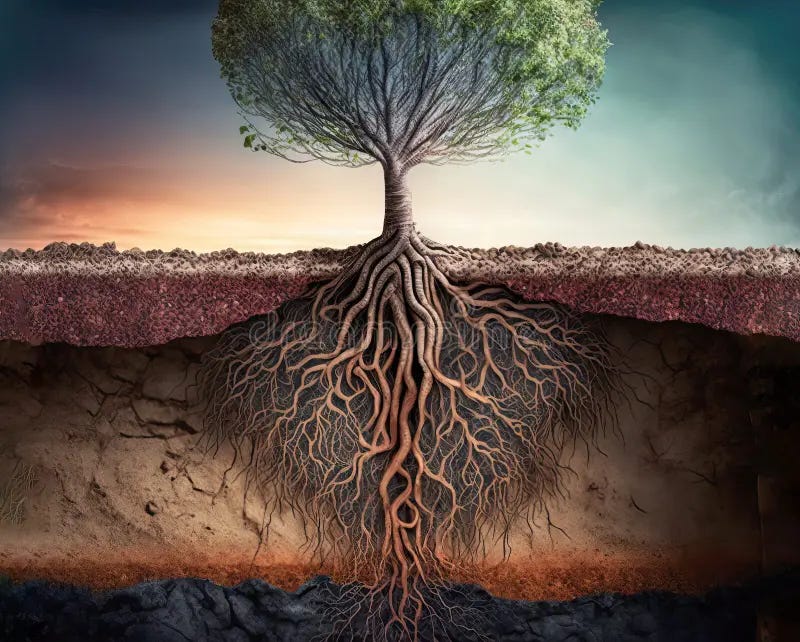The Thought of Death is Desirable, Death Itself is Essential
Live not with dread—but with depth. Not with anxiety—but with awareness. Because the one who remembers death, begins to truly live.
The Thought of Death is Desirable, Death Itself is Essential
By Karan Bir Singh Sidhu
I. The Illusion of Permanence
From stars that burn for billions of years to subatomic particles that vanish in trillionths of a second, the message is universal: everything that is born must die. Yet we live as if we are exempt. Our ambitions, attachments, and anxieties often ignore the fact that our time is limited.
Guru Tegh Bahadur Ji distills this reality with haunting precision:
ਜੋ ਉਪਜਿਓ ਸੋ ਬਿਨਸੁ ਹੈ ਪਰੋ ਆਜੁ ਕੈ ਕਾਲਿ ॥
jo upajio so binas hai, paro aaj kai kaal
(SGGS Ang 1429)
Whatever is born shall perish; all will pass away, today or tomorrow.
This is not nihilism—it is liberation. Recognizing death allows us to live with purpose and proportion.
II. The Creator Forgotten, the Destroyer Revered
A telling spiritual metaphor is found in our places of worship. Lord Brahma, the Creator of the universe, has only one prominent temple, located in Pushkar, Rajasthan. Meanwhile, Lord Vishnu, the Preserver, and Lord Shiva, the Destroyer, are worshipped across thousands of shrines.
Why does the Creator receive less reverence?
Because creation alone is not enough. It is preservation and regeneration that ensure continuity. Without the destruction of the old, the new cannot emerge. The world respects not only the beginning, but those forces that sustain and renew it.
III. Time is Sacred, Not Infinite
Once we internalize our mortality, time becomes sacred. It is no longer something to be spent, but something to be honored. We move from distraction to focus, from delay to action, from ego to essence.
Guru Tegh Bahadur Ji writes:
ਚਿੰਤਾ ਤਾ ਕੀ ਕੀਜੀਐ ਜੋ ਅਨਹੋਨੀ ਹੋਇ ॥
ਇਹ ਮਾਰਗੁ ਸੰਸਾਰ ਕੋ ਨਾਨਕ ਥਿਰੁ ਨਹੀ ਕੋਇ ॥
chinta ta ki keejiye jo anhoni hoye, ih maarag sansaar ko Nanak thir nahi koi
(SGGS Ang 1429)
Worry only about what is impossible; in this world, O Nanak, nothing is permanent.
Our time is not endless. But it is enough—if we choose to make it meaningful.
IV. Steve Jobs: Mortality as a Lens for Life
At Stanford University in 2005, Steve Jobs, facing cancer, told graduating students:
“Remembering that you are going to die is the best way I know to avoid the trap of thinking you have something to lose.”
“Death is very likely the single best invention of Life. It is Life’s change agent.”
Jobs’ insight wasn’t born of dogma—it was born of clarity. Like saints before him, he saw that death is not the end, but the transition that makes evolution possible.
V. Bhutan’s Secret to Happiness
The small Himalayan kingdom of Bhutan, often cited among the happiest countries in the world, encourages its citizens to contemplate their own death once a day.
Why?
Because it puts everything in perspective. It shrinks the ego and expands compassion. It reminds us that even those who believe they cannot live without us will one day arrange our cremation and carry on. And that is not tragic—it is freeing.
VI. Sukhmani Sahib’s Remedy for Fear of Death
While awareness of death brings wisdom, some are haunted by the fear of it. For them, Sri Guru Granth Sahib offers healing.
From Sukhmani Sahib, the composition of the Fifth Nanak, Guru Arjan Dev Ji:
ਜੇ ਕੋ ਜਨਮ ਮਰਣ ਤੇ ਡਰੇ ॥
ਸਾਧ ਜਨਾ ਕੀ ਸਰਨਿ ਪਰੇ ॥
je ko janam maran te dare, saadh janaa kee saran pare
(SGGS Ang 273)
Whoever fears the cycle of birth and death should seek the sanctuary of the holy (saints).
This sanctuary is not merely physical. It is the refuge of wisdom, stillness, and divine presence. In such company, the grip of fear loosens.
VII. Tennyson’s Farewell: The Old Order Changeth
In the realm of Western literature, few reflections on mortality are as poignant as Lord Tennyson’s verse in The Passing of Arthur, from Idylls of the King. As King Arthur lay dying, he turned to his knights and said:
“The old order changeth, yielding place to new,
And God fulfils Himself in many ways,
Lest one good custom should corrupt the world.”
Even the noblest of kings knew that his time must pass for new forces to rise. Change is not betrayal—it is divine continuity. Death is not destruction—it is evolution.
VIII. Ego Humbled, Legacy Refined
The thought of inevitable death is a powerful antidote to the human ego. It humbles us. It punctures arrogance. It reminds us that titles fade, wealth dissipates, and monuments crumble.
But this does not mean we should retreat from striving.
On the contrary—this clarity should inspire us to build a legacy not in stone, but in spirit. Not merely in institutions or inventions, but in the minds we enlighten, the hearts we touch, and the lives we uplift.
That is how we continue—not as names engraved in marble, but as memories etched in love.
IX. To Live with the End in Mind
The thought of death is desirable, because it brings clarity.
Death itself is essential, because it brings renewal.
And both are inevitable.
From Gurbani to Bhutan, from Tennyson to Jobs, the timeless message is clear:
Contemplate death—not to grieve life, but to illuminate it.
Live not with dread—but with depth. Not with anxiety—but with awareness.
Because the one who remembers death, begins to truly live.







I have never feared death - it is liberation, what I fear is having to live without those I love.
ਕਪੜੁ ਰੂਪ ਸੁਹਾਵਣਾ ਛਡਿ ਦੁਨੀਆ ਅੰਦਰਿ ਜਾਵਣਾ ।।
ਮੰਦਾ ਚੰਗਾ ਆਪਣਾ ਆਪੇ ਹੀ ਕੀਤਾ ਪਾਲਣਾ ।।
ਹੁਕਮ ਕੀਏ ਮਨਿ ਭਾਵਦੇ ਰਾਹਿ ਭੀੜੈ ਅਗੈ ਜਾਵਣਾ।।
ਨੰਗਾ ਦੋਜਕਿ ਚਾਲਿਆ ਤਾਂ ਦਿਸੈ ਖਰਾ ਡਰਾਵਣਾ।।
ਬਹੁਤ ਜ਼ਬਰਦਸਤ ਵਿਸ਼ਾ ਅਤੇ ਜ਼ਬਰਦਸਤ ਢੰਗ ਨਾਲ ਉਠਾਏ ਜਾਣ ਲਈ ਸਿੱਧੂ ਸਾਬ ਦਾ ਧੰਨਵਾਦ।
ਮਨੁੱਖ ਬਾਖੂਬੀ ਜਾਣਦਾ ਹੈ ਕਿ ਇਹ ਸੰਸਾਰ ਇੱਕ ਤਮਾਸ਼ਾ ਹੈ ਅਤੇ ਤਮਾਸ਼ੇ ਦੇ ਅਖੀਰ ਵਿੱਚ ਕੁਝ ਵੀ ਹੱਥ ਵਿੱਚ ਨਹੀਂ ਹੁੰਦਾ ਫਿਰ ਵੀ ਜਾਣਦੇ ਬੁਝਦੇ ਹੋਏ ਮਨੁੱਖ ਨੇ ਇਸ ਤਮਾਸ਼ੇ ਨੂੰ ਸੱਚ ਕਰਕੇ ਮੰਨਿਆਂ ਹੋਇਆ ਹੈ ਅਤੇ ਸੰਸਾਰਕ ਬਖੇੜੇ ਪੈਦਾ ਕੀਤੇ ਹੋਏ ਹਨ।
ਅਜਿਹੇ ਨੁਕਤੇ ਜਰੂਰ ਸਾਂਝੇ ਕਰਿਆ ਕਰੋ ਤਾਂ ਜੋ ਮੇਰੇ ਵਰਗੇ ਭੁੱਲੇ ਭਟਕੇ ਇਨਸਾਨ ਨੂੰ ਆਖਰੀ ਸਾਹ ਲੈਣ ਤੱਕ ਸ਼ਾਇਦ ਇਸ ਸ਼ਬਦ ਦੇ ਅਨੁਸਾਰੀ ਜੀਵਨ ਜਿਉਣ ਦਾ ਚੱਜ ਆ ਜਾਵੇ।
ਨਿਸ਼ਾਨ ਸਿੰਘ ਕਾਹਲੋਂ